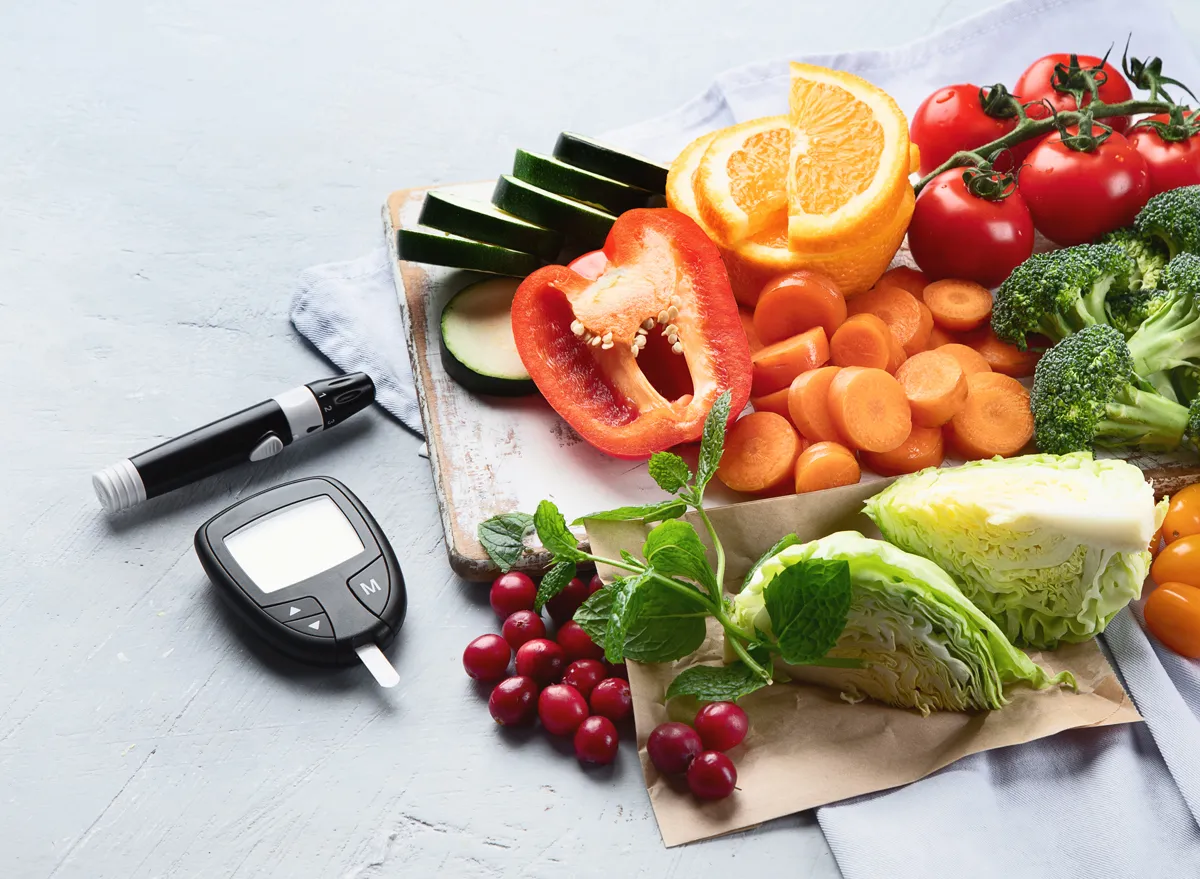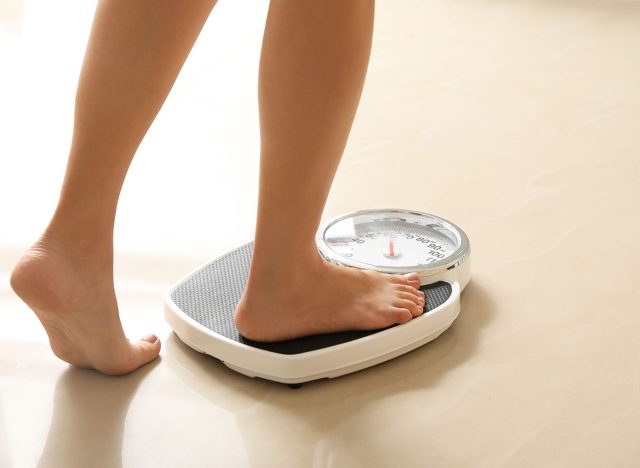This Is The Best Weight Loss Diet If You Have Diabetes, New Study Says

If you or an adult you know wants to lose weight or stay at a current weight in order to help manage type 2 diabetes, incorporating a low energy diet might be the best option, according to a new study that was just published in Diabetologia, a journal from the European Association for the Study of Diabetes.
In an effort led by Professor Mike Lean, Dr. Chaitong Churuangsuk, and their colleagues at the Universities of Glasgow, the researchers took a look at 19 published meta-analyses and explained that while results are not always the same for everyone, "Very low energy diets and formula meal replacement appear the most effective approaches" when it comes to weight loss and management for those with type 2 diabetes. (Energy refers to calories.)
What's more, the study found that programs that include a "total diet replacement" induction phase (of 830 kcal/day for 12 weeks) followed by a relatively low-fat high carbohydrate diet and meal replacements were most effective for people with type 2 diabetes to lose weight and even experience remission, as up to 61% of participants experienced remission within one year.
Related: Eating Habits to Avoid if You Don't Want Diabetes, Say Experts
Given that type 2 diabetes is primarily caused by unhealthy weight gain, these findings are key in order to help fight the diabetes epidemic, which the study authors raise an alarm bell about. "Without strategic commitment internationally on effective prevention strategies, type 2 diabetes will affect an estimated 629 million people worldwide by 2045," they write.
By losing weight through diet methods, type 2 diabetes patients can experience remission and an improvement in the risk factors associated with the disease, a press release on the study notes.
Trista Best, MPH, RD, LD, of Balance One Supplements, explains to Eat This, Not That! that adults with diabetes "may benefit from reducing the amount of calories they consume at a given time as a way to prevent rapid and long-term glucose spikes."

Related: Sign up for our newsletter for more of the latest health and food news!
Vanessa Spina, SNS (Sports Nutrition Specialist) and bestselling author of Keto Essentials as well as the host of the Fast Keto Podcast, notes that a low energy diet "ensures adequate protein is consumed while the energy or 'calories' aspect is lowered." That's why the effectiveness of the diet "makes sense as type 2 diabetics are dealing with energy toxicity—excess energy from fat and carbohydrate stored on the body. Insulin resistance develops whereby the body's ability to store fat and carbohydrate has been maximized. This is why a low energy diet is so effective."
Spina also pointed out that a low-energy diet can benefit those who don't have diabetes "if the goal is acute fat loss." While the diets "can appear to be extreme," the "optimal way" to incorporate a low energy food plan into your lifestyle "would be to do a protein-sparing, modified fast, which is very low energy and 650-800 calories per day of lean protein."
Alternatively, intermittent fasting "with an 8-hour eating window and 16-hour fasting window" can be effective, as can using "protein shakes if one prefers to go by a formula-based diet," Spina says.
Of course, it's important to check with your doctor before starting a new diet plan.
To find out more about what people with diabetes should and shouldn't be eating, be sure to read 50 Best Foods for Diabetics and 50 Worst Foods for Diabetes.








